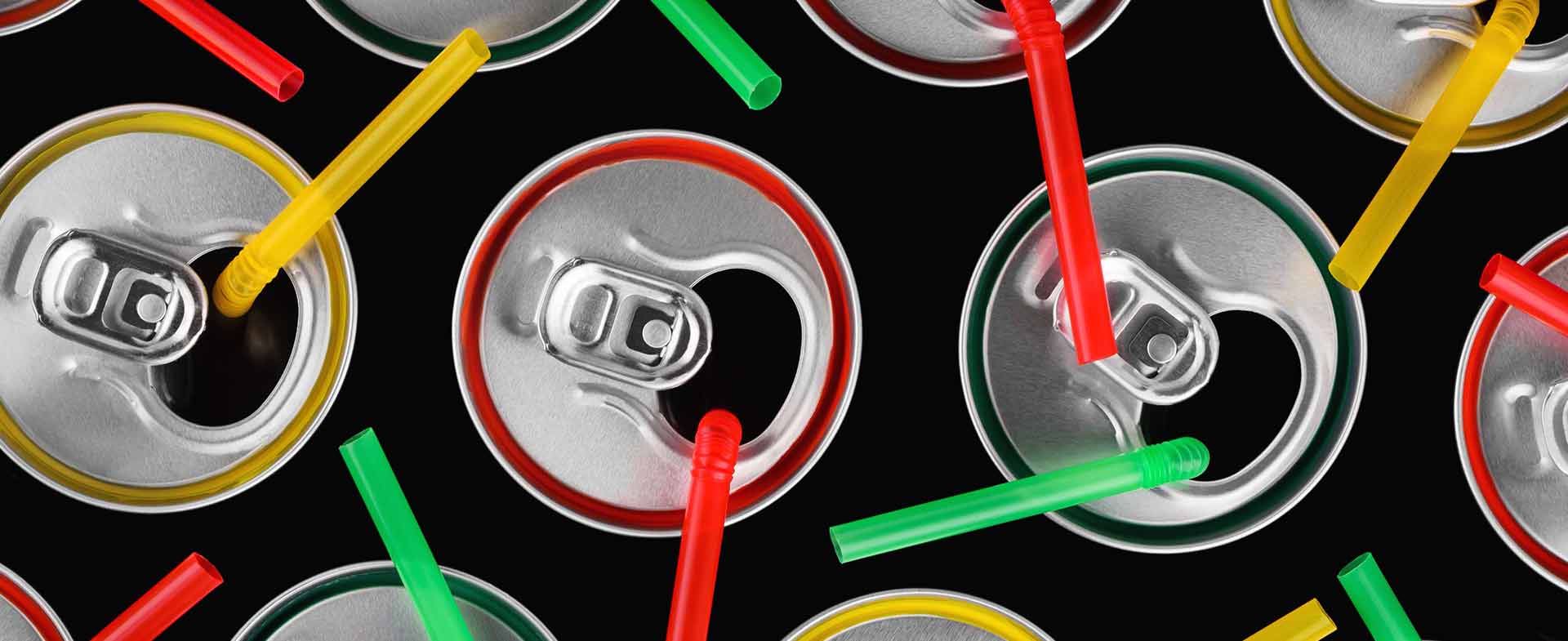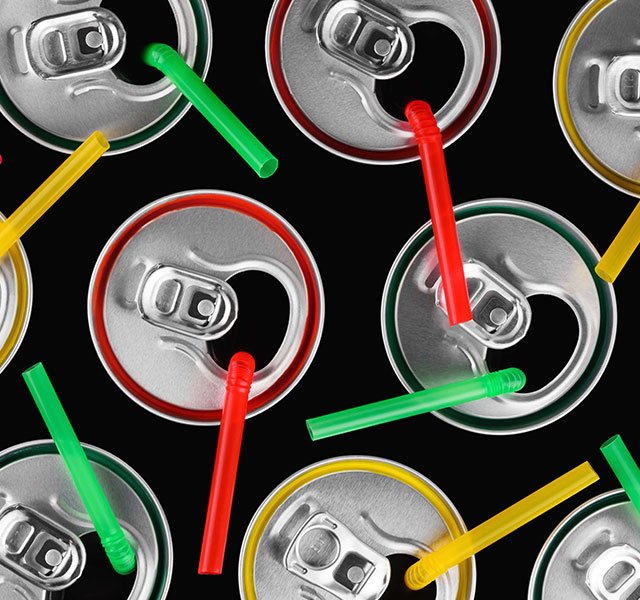Energy drinks are the fastest growing beverage in the U.S. market. With promises to energize you (even you stayed up too late studying or goofing off on your phone), these drinks are especially popular among young people. In fact, a growing number of kids and teens are turning to energy drinks as a substitute for breakfast. But these drinks come with a serious downside – they’re loaded with sugar and caffeine, both of which are linked to a slew of health problems for kids, ranging from headaches and stomachaches to hyperactivity and sleep problems.
FAQ: Energy Drinks
How exactly do these sugar- and caffeine-packed beverages affect kids? Read on for answers to parents’ frequently asked questions.
Q: What’s typically in an energy drink?
A: The key ingredients are a lot of sugar and caffeine. For pop, the maximum caffeine content is 71 milligrams per 12 fluid ounces. In comparison, there is no caffeine limit on energy drinks. An 8-ounce can of Red Bull contains about 80 milligrams of caffeine, about the equivalent of a regular cup of coffee. Monster Energy, which comes in larger cans, packs double the caffeine. Equally concerning, energy drinks typically contain 60 percent more sugar than normal soft drinks.
Q: How do these sugar- and caffeine-packed drinks impact kids’ health, development, behavior and well-being?
A: Kids often think energy drinks are comparable to pop or coffee. But the extreme caffeine content can lead to troubling symptoms including increased heart rate, nausea and vomiting, high blood pressure, tremors, dizziness and numbness. Kids who have underlying health conditions, such as seizures, gastrointestinal issues, kidney disease or behavioral and mood problems could suffer from more severe consequences — in rare cases, even death.
Q: What should parents know about these drinks?
A: Studies show children drink them more than adults, despite warnings that high intake of caffeine is not recommended for children. Even more concerning, some of these drinks come dangerously close to potentially lethal doses of caffeine in a can, 200 to 400 milligrams. And, in most cases, kids finish the can.
Q: Can kids get addicted to energy drinks?
A: Since caffeine is a drug, kids can become addicted to these drinks, just as they would to alcohol or nicotine.
A Beverage Revolution
There’s no good reason for a child to consume energy drinks. When kids engage in high-exertion activities, such as an all-day soccer tournament, sports drinks may help them replace lost electrolytes and rehydrate. Check with your pediatrician for the best options. Chocolate milk is also a good choice after exercise. It not only rehydrates and contains needed carbohydrates (sugars), it also refuels muscles by increasing glycogen, which improves future performance.
Otherwise, young people should fuel up with water (infuse it with fruit or dress it up with fancy ice cubes made in fun shapes or from fruit juice), a well-balanced diet and adequate rest.
With the growing concern about the impact of high-caffeine, high-sugar drinks on young people’s health and well-being, the United Kingdom recently proposed a ban on energy drinks, including Red Bull and Monster Energy, for kids under 18. Anyone who is concerned in the U.S. should push our legislators to regulate the caffeine content in these products at the national level as well.
The bottom line: Pay attention to what your kids are eating and drinking and guide them to appropriate choices. The best way to achieve that end is by modeling healthy behaviors and enforcing them.
If you’re concerned about your child’s use of energy drinks, or think he may be addicted, make an appointment with a Henry Ford pediatrician. Visit henryford.com or call 1-800-HENRYFORD (436-7936) to get help.

